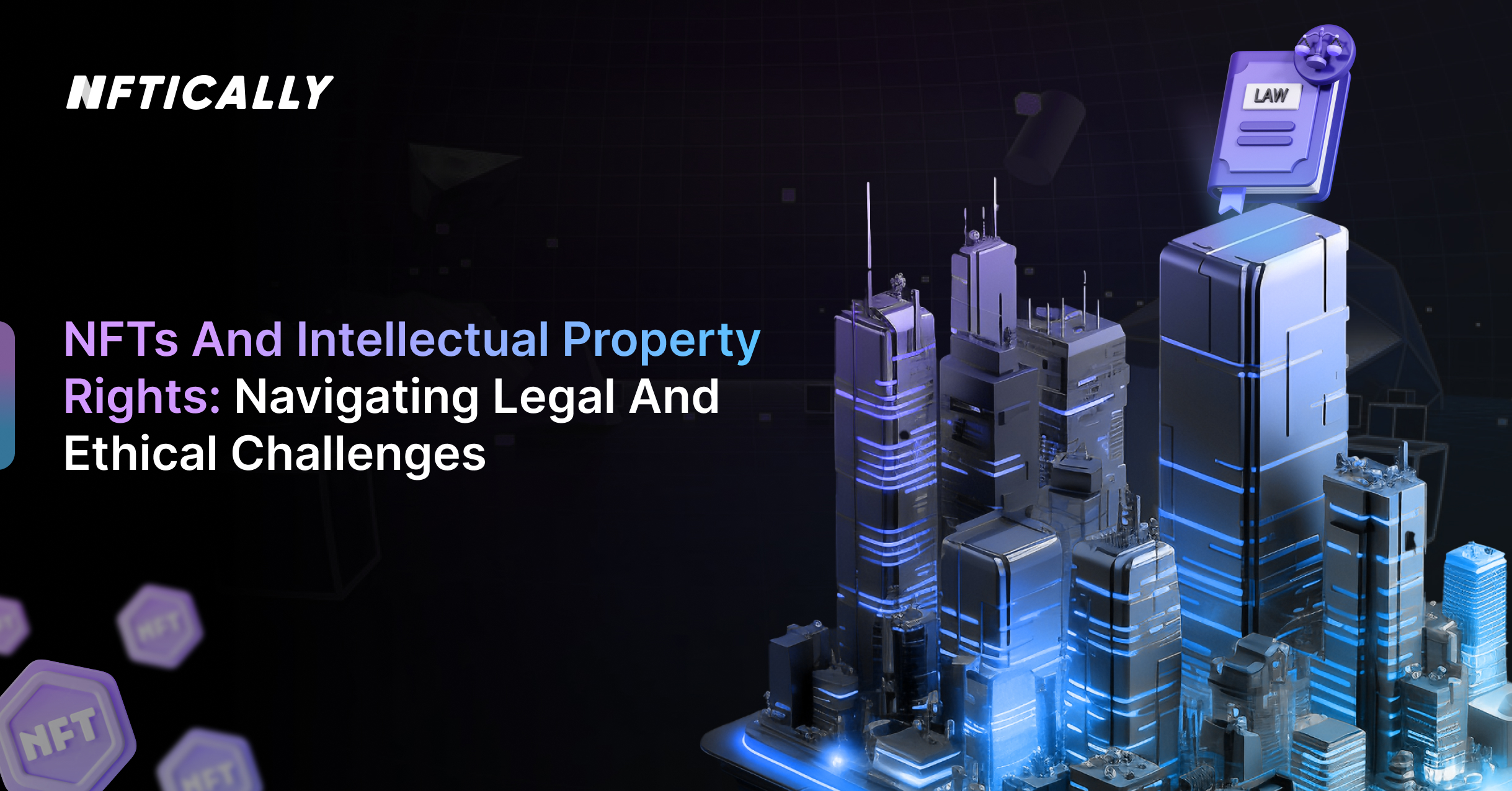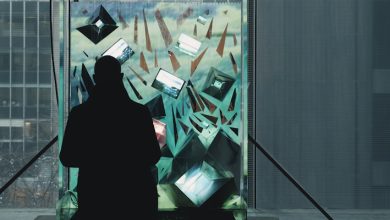NFTs and Intellectual Property Rights

- Understanding NFTs and their impact on intellectual property rights
- Exploring the intersection of NFTs and copyright law
- Challenges and opportunities for creators in the NFT space
- Navigating the legal landscape of NFTs and IP rights
- Protecting your digital assets: A guide for NFT creators
- The future of intellectual property in the age of NFTs
Understanding NFTs and their impact on intellectual property rights
NFTs, or non-fungible tokens, have been making waves in the world of intellectual property rights. These digital assets represent ownership of unique items or pieces of content on the blockchain. As NFTs continue to gain popularity, it is essential to understand their impact on intellectual property rights.
One of the key aspects of NFTs is their ability to provide proof of ownership and authenticity for digital assets. This has significant implications for creators and owners of intellectual property, as it allows them to establish a clear record of ownership and control over their work. By tokenizing their creations, artists, musicians, writers, and other content creators can protect their intellectual property rights in a digital environment.
However, the rise of NFTs also raises questions and challenges regarding intellectual property rights. For example, the ownership of an NFT does not necessarily equate to ownership of the underlying content. While the token itself can be bought and sold, the copyright and other intellectual property rights associated with the content may still belong to the creator or original rights holder.
As NFTs continue to disrupt traditional notions of ownership and value in the digital space, it is crucial for creators, collectors, and investors to navigate these complexities carefully. Understanding the intersection of NFTs and intellectual property rights is essential for protecting the rights of creators and ensuring a fair and transparent marketplace for digital assets.
Exploring the intersection of NFTs and copyright law
Exploring the intersection of NFTs and copyright law is crucial in understanding the implications of this emerging technology on intellectual property rights. NFTs, or non-fungible tokens, have gained popularity in the digital art world as a way to authenticate and sell digital artworks. However, the use of NFTs raises questions about ownership, licensing, and copyright infringement.
One of the key issues surrounding NFTs and copyright law is the question of who owns the rights to a digital artwork that has been tokenized as an NFT. While the buyer of an NFT may own the token itself, the copyright to the underlying artwork may still belong to the artist or creator. This has led to debates about the extent of control that artists have over the use and distribution of their work once it has been tokenized.
Another concern is the potential for copyright infringement through the creation and sale of NFTs based on copyrighted works without the permission of the original creators. This has raised questions about the need for clearer regulations and guidelines to protect the rights of artists and creators in the digital space.
As NFTs continue to gain popularity and mainstream acceptance, it is essential for lawmakers, artists, and collectors to work together to find a balance between the innovative potential of NFTs and the protection of intellectual property rights. By exploring the intersection of NFTs and copyright law, we can ensure that this technology is used responsibly and ethically in the digital art world.
Challenges and opportunities for creators in the NFT space
Creators in the NFT space face a unique set of challenges and opportunities when it comes to intellectual property rights. On one hand, NFTs provide creators with a new way to monetize their work and reach a global audience. This can open up new revenue streams and opportunities for collaboration with other artists and brands.
However, there are also risks involved in the NFT space. One of the biggest challenges is the potential for copyright infringement. Since NFTs are digital assets that can be easily replicated and shared online, creators need to be vigilant in protecting their intellectual property rights. This includes registering their work with the appropriate authorities and taking legal action against infringers.
Another challenge for creators in the NFT space is the lack of regulation. Unlike traditional art markets, the NFT space is still relatively unregulated, which can make it difficult for creators to navigate legal issues and protect their rights. This means that creators need to be proactive in educating themselves about intellectual property law and seeking out legal advice when necessary.
Despite these challenges, there are also many opportunities for creators in the NFT space. For example, NFTs can provide artists with a way to connect directly with their fans and build a community around their work. This can lead to new opportunities for collaboration, promotion, and monetization.
In conclusion, creators in the NFT space need to be aware of the challenges and opportunities that come with the territory. By taking proactive steps to protect their intellectual property rights and staying informed about legal issues, creators can maximize their success in the NFT space.
Navigating the legal landscape of NFTs and IP rights
Navigating the legal landscape of NFTs and intellectual property (IP) rights can be a complex and challenging task for creators and buyers alike. As the popularity of NFTs continues to grow, so do the legal implications surrounding ownership and usage of digital assets. It is crucial for individuals involved in the NFT space to understand the various IP rights at play and how they can protect themselves and their creations.
One of the key considerations when dealing with NFTs and IP rights is the issue of copyright. Copyright law protects original works of authorship, including digital art, music, and other creative content. When an NFT is created and sold, it is important to ensure that the creator holds the necessary rights to the underlying work. Buyers should also be aware of any licensing agreements or restrictions that may apply to the NFT they are purchasing.
Another important aspect to consider is trademark law. Trademarks are used to protect brand names, logos, and other identifiers that distinguish one product or service from another. When creating or selling NFTs, it is important to avoid using trademarks owned by others without permission. This can help prevent potential legal disputes and protect the value of the NFT in question.
Additionally, individuals involved in the NFT space should be mindful of issues related to publicity rights and privacy. These rights protect an individual’s likeness, name, and other personal attributes from unauthorized use. When creating or selling NFTs that feature recognizable individuals, it is important to obtain the necessary permissions and releases to avoid infringing on these rights.
In conclusion, navigating the legal landscape of NFTs and IP rights requires a thorough understanding of copyright, trademark, publicity rights, and privacy laws. By taking the necessary precautions and seeking legal advice when needed, creators and buyers can protect themselves and their assets in the fast-evolving world of NFTs.
Protecting your digital assets: A guide for NFT creators
When it comes to protecting your digital assets as an NFT creator, there are several important steps you can take to safeguard your intellectual property rights. By following these guidelines, you can help ensure that your NFTs are not subject to unauthorized use or infringement.
- Watermark your NFTs: Adding a visible watermark to your NFTs can help deter potential infringers from using your work without permission. This can also help identify your NFTs as authentic and original creations.
- Register your copyright: Registering your copyright with the appropriate authorities can provide you with legal protection in case of infringement. This can help you enforce your rights and seek damages if someone uses your NFTs without authorization.
- Use smart contracts: Implementing smart contracts in your NFTs can help automate the licensing and distribution process, ensuring that you retain control over how your work is used. This can help prevent unauthorized reproduction or distribution of your NFTs.
- Monitor the marketplace: Regularly monitoring NFT marketplaces and online platforms can help you identify any unauthorized use of your work. By staying vigilant, you can take action against infringers and protect your intellectual property rights.
By taking these proactive measures, you can protect your digital assets as an NFT creator and safeguard your intellectual property rights. Remember that it is essential to stay informed about the latest developments in the NFT space and to take action promptly if you suspect any infringement of your work.
The future of intellectual property in the age of NFTs
The future of intellectual property in the age of NFTs is a topic that has sparked much debate and discussion among creators, collectors, and legal experts. Non-fungible tokens (NFTs) have revolutionized the way digital assets are bought, sold, and owned, raising questions about how intellectual property rights will be protected in this new landscape.
One of the key challenges facing intellectual property rights in the age of NFTs is the issue of ownership and authenticity. With NFTs, creators can tokenize their work and sell it as a unique digital asset. However, this has led to concerns about copyright infringement and the unauthorized use of intellectual property. As a result, there is a growing need for clear guidelines and regulations to protect creators and their work.
Another important consideration is the role of smart contracts in NFT transactions. Smart contracts are self-executing contracts with the terms of the agreement directly written into code. While this technology has streamlined the buying and selling of NFTs, it also raises questions about how intellectual property rights will be enforced in the event of a dispute. As such, there is a need for legal frameworks to address these issues and ensure that creators are fairly compensated for their work.
In conclusion, the future of intellectual property in the age of NFTs is still uncertain, but it is clear that new challenges and opportunities will arise as this technology continues to evolve. By establishing clear guidelines, regulations, and legal frameworks, we can ensure that creators are protected and that intellectual property rights are upheld in this new digital landscape.




